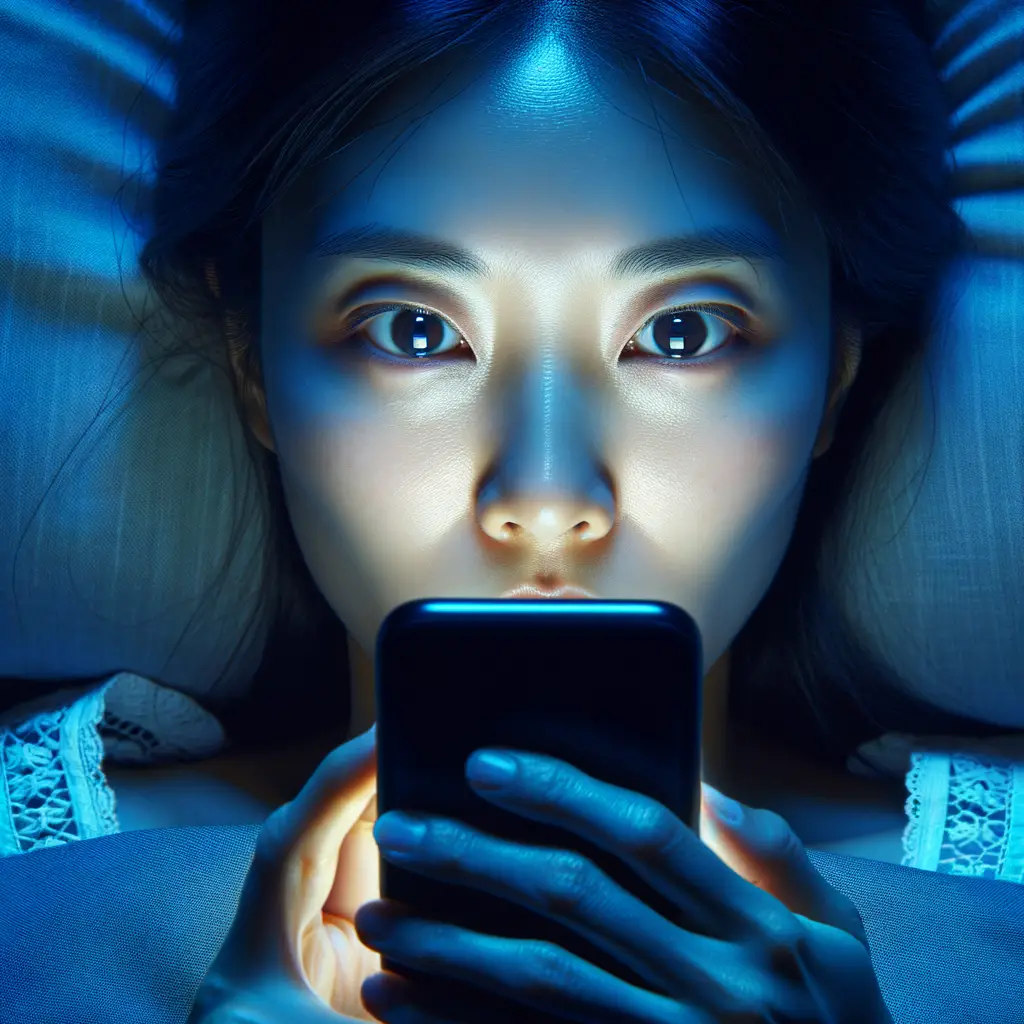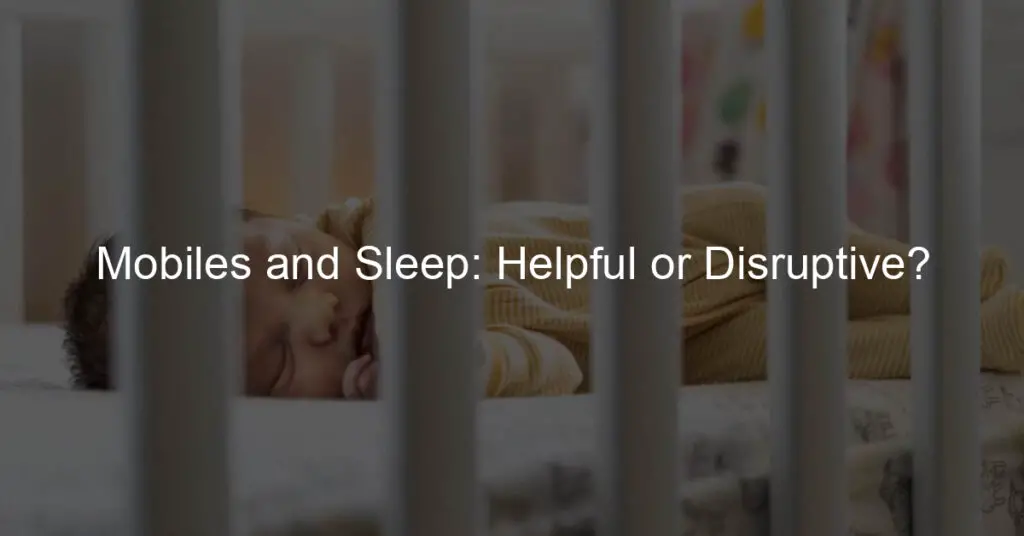Introduction: Sleep & Smartphones
In today’s digital age, smartphones have become an integral part of our lives. They are our constant companions, from the moment we wake up to the time we go to bed. But how does this constant interaction with smartphones affect our sleep? This blog post aims to shed light on this topic.
Understanding the relationship between sleep and smartphones
Smartphones are not just communication devices; they are also sources of entertainment, information, and sometimes, distraction. The blue light emitted by these devices can interfere with our sleep patterns. According to a Wikipedia article, exposure to blue light before bedtime can make it harder to fall asleep. It can also reduce the amount of REM sleep we get, which is the deep, restorative sleep our bodies need.
Exploring the concept of mobile sleep disruption
Mobile sleep disruption refers to the negative impact of smartphone use on sleep quality and duration. It’s not just the blue light that’s the problem. The constant notifications, the temptation to check emails or social media, and the habit of using the phone as an alarm clock can all contribute to sleep disruption. A study cited on Wikipedia found that people who use their smartphones more frequently are more likely to have disrupted sleep.
In the following sections, we will delve deeper into the impact of smartphones on sleep, explore the link between sleep disorders and mobile use, and provide practical tips for better sleep hygiene in the digital age. Stay tuned!
The Impact of Smartphones on Sleep
With the advent of smartphones, our lives have changed in many ways. One area where these devices have had a significant impact is on our sleep. Let’s delve into this topic and understand the effects of mobiles on sleep.
Effects of Mobiles on Sleep
Mobile phones, especially when used late at night, can disrupt our sleep patterns and affect the quality of our sleep. Here are two main points to consider:
How mobile phones can disrupt sleep patterns
Mobile phones emit a type of light known as blue light. When our eyes are exposed to this light, it can trick our brains into thinking it’s still daytime, making it harder for us to fall asleep. This is because blue light suppresses the production of melatonin, a hormone that signals our body it’s time to sleep. As a result, using mobile phones before bedtime can lead to difficulty falling asleep, shorter sleep duration, and poorer sleep quality. [1]
Case study: The impact of late-night mobile use on sleep quality
A study conducted by the National Sleep Foundation found that 90% of people in the United States use their electronic devices within an hour of bedtime at least a few nights per week. Participants who reported frequent use of mobile phones at bedtime were more likely to report poor sleep quality. The study concluded that late-night electronic use is associated with sleep disorders due to the suppression of melatonin. [2]
In conclusion, the use of smartphones, especially before bedtime, can have a significant impact on our sleep patterns and overall sleep quality. It’s important to be mindful of our mobile usage habits to ensure a good night’s sleep. 
Blue Light from Mobiles and Sleep
Our mobile devices are a significant part of our lives, but they can also affect our sleep. One of the main culprits is the blue light emitted from our screens. Let’s delve deeper into this issue.
Understanding the effect of blue light on sleep
Blue light is a type of light with a short wavelength, which means it produces a higher amount of energy. Studies from Wikipedia suggest that exposure to blue light can delay the release of melatonin, the hormone responsible for sleep, and reset the body’s internal clock to a later schedule. This can lead to difficulty falling asleep and daytime fatigue.
Exploring the connection between mobile screen light and sleep
Mobile screens emit a significant amount of blue light. When we use our mobile devices in the evening or before bed, the blue light tricks our brains into thinking it’s still daytime, which can prevent us from falling asleep. According to a Wikipedia study, people who use their mobile devices before bed take longer to reach the deep, restful stages of sleep and are more likely to wake up feeling tired.
In conclusion, the blue light from our mobile devices can have a significant impact on our sleep. By understanding this connection, we can take steps to improve our sleep hygiene and overall health.
Sleep Disorders and Mobile Use
It’s no secret that our mobile devices have become a significant part of our lives. However, excessive use, especially before bedtime, can lead to various sleep disorders. Let’s delve into this topic.
Mobile Usage Before Bedtime
How using mobiles before bedtime can lead to sleep disorders
Using mobile devices before bedtime can interfere with our body’s natural sleep cycle. The blue light emitted by these devices suppresses the production of melatonin, a hormone that regulates sleep. This can lead to difficulties in falling asleep and maintaining sleep, causing sleep disorders like insomnia. [1]
Key takeaway: The importance of limiting mobile usage before sleep
Given the potential harm, it’s crucial to limit mobile usage before sleep. Establishing a ‘digital curfew’ an hour before bedtime can significantly improve sleep quality.
Exploring the link between mobile addiction and sleep disruption
Mobile addiction can lead to sleep disruption. The constant need to check updates or messages can lead to delayed bedtime and fragmented sleep. Over time, this can result in chronic sleep deprivation and other health issues.
Case study: The impact of mobile addiction on sleep quality
A study found that individuals who excessively used their mobiles before sleep had poorer sleep quality compared to those who limited their usage. The former group reported higher instances of daytime sleepiness and fatigue. [2]
Recommendations for reducing the impact of smartphones on sleep
Some recommendations include setting a digital curfew, using night mode to reduce blue light exposure, and keeping mobile devices out of the bedroom. Creating a relaxing pre-sleep routine can also help improve sleep quality.
Key takeaway: The importance of creating a healthy sleep environment
A healthy sleep environment is free from distractions, including mobile devices. It’s crucial to prioritize sleep hygiene for better sleep quality and overall health.
Exploring apps and settings that can minimize sleep disruption
There are various apps and settings available that can help minimize sleep disruption. For instance, ‘night mode’ reduces blue light exposure, and ‘do not disturb’ mode limits notifications during sleep hours.
Case study: How technology can help improve sleep quality
Interestingly, technology can also aid in improving sleep quality. For instance, sleep tracking apps can provide insights into sleep patterns and suggest personalized tips for improvement. [3]
Reflecting on the impact of smartphones on sleep
While smartphones offer numerous benefits, their impact on sleep cannot be ignored. It’s crucial to strike a balance between digital connectivity and sleep health.
Key takeaway: The importance of mindful mobile use for better sleep
Ultimately, mindful mobile use is key to better sleep. By being aware of our digital habits and making necessary adjustments, we can enjoy the benefits of technology without compromising our sleep.














